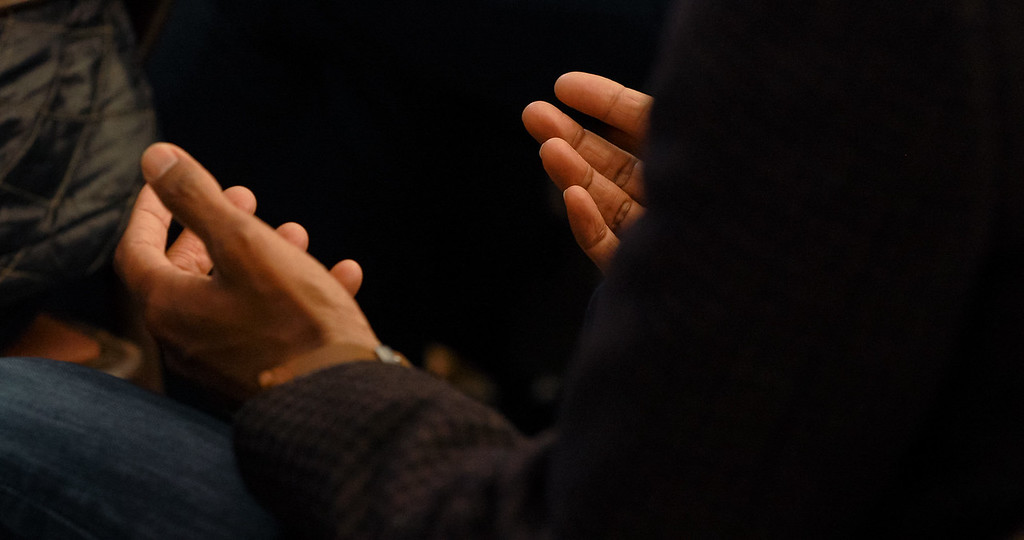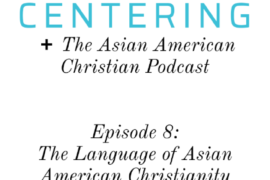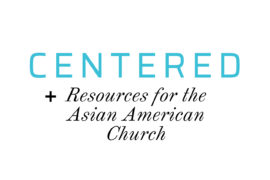
Thanksgiving was always one of my favorite holidays growing up: good food, good family time, good shopping deals – and did I mention good food? Over the past few years, though, as I have started working closely with indigenous North Americans, my feelings about Thanksgiving have become a little more complicated.
On the one hand, it really is a joy to reflect on all the blessings God has showered me and my family with, and to thank him for his goodness and provision. Giving thanks and praise to the Lord is a practice that God’s people have preserved from the time of Abraham through to King David, and even in the difficult days of the early Church.
Giving thanks and praise to the Lord is a practice that God’s people have preserved from the time of Abraham…
On the other hand, every time I hear about that first celebratory harvest feast between the Pilgrims and Native Americans, I can’t help but be reminded of the devastating wounds that have been inflicted upon this land’s original inhabitants – both before and after that event – for the sake of the prosperity of our country.
Jesus was well-acquainted with the weaknesses of human nature when it comes to our sinfulness and selfishness. In response, he taught his followers that only repentance can pave the way for true expressions of thanksgiving.
In Luke 18:9-14, Jesus tells the parable of a Pharisee who prays, “God, I thank you that I am not like other people—robbers, evildoers, adulterers—or even like this tax collector. I fast twice a week and give a tenth of all I get.” This man’s cheap thanksgiving paid lip service to God but failed to recognize his own unrighteousness. In contrast, a praying tax collector “would not even look up to heaven, but beat his breast and said, ‘God, have mercy on me, a sinner.’”
…it is precisely those people with a deep understanding of their own sinfulness who are the most thankful.
In Luke 7:36-50, we see that it is precisely those people with a deep understanding of their own sinfulness who are the most thankful. A woman, possibly a prostitute, comes to Jesus while he is eating and washes his feet with her tears, wiping them dry with her hair, and anointing them with perfume. Jesus’s host, a Pharisee, is shocked that he would allow such a sinful woman near him. Yet, Jesus explains, “I tell you, her sins—and they are many—have been forgiven, so she has shown me much love. But a person who is forgiven little shows only little love.” The depth of this woman’s repentance translated directly into the love and thanksgiving she expressed in her actions.
Likewise, we as Christians would be remiss if we merely thanked God for the privileges of being citizens of his kingdom, without also acknowledging the suffering Jesus undertook for our sins, which made our salvation possible. Beyond just personal shortcomings, on a national holiday like Thanksgiving it is particularly important to reflect on the corporate responsibility we bear for the sins of the institutions we benefit from. As John Dawson has said, “The greatest wounds in human history, the greatest injustices, have not happened through the acts of some individual perpetrator, rather through the institutions, systems, philosophies, cultures, religions and governments of mankind.” The last thing I want on this Thanksgiving is to be Pharisaical: so grateful for living the American dream that I forget to confess and repent of the injustices committed against Native Americans for the sake of that dream.
As a second-generation Chinese American, it is tempting to distance myself from the United States’ mistreatment of Native Americans. After all, my ancestors were living on the other side of the world as those terrible acts were committed. And if we define sin exclusively as “individual wrongdoing”, then sure, no one alive is culpable for the systemic injustices in America.
But this also means that generations of people who have been hurt by these injustices never receive the repentance and reconciliation necessary to bring peace and healing to their wounds. I have benefited from the takeover of native lands in the locations where I have lived, worked, studied, and played, and I have profited from an economy founded upon the exploitation of this land. In these ways, I too bear some of the corporate shame for America’s sins – and the opportunity to participate in repentance and even perhaps restoration.
I too bear some of the corporate shame for America’s sins – and the opportunity to participate in repentance and even perhaps restoration.
Of course, my perspective is only one among many diverse voices in the AAPI community. My Native Hawaiian and Pacific Islander brothers and sisters continue to be directly impacted by American colonial policies, while the experience of being subjects of foreign rule is familiar to Filipino and Southeast Asian Americans. Also among us are those who carry the legacy of Japanese colonialism, or of Asian majority cultures that have persecuted ethnic minorities. Together, our stories find echoes in all the complex facets of the Thanksgiving tradition.
And yet, one of the most beautiful things about the AAPI community is our ability to share and learn from each other’s journeys. As we rejoice with those who rejoice and weep with those who weep, we break down dividing walls of hostility and make room for repentance, reconciliation, and the rebuilding of God’s kingdom. And for that, this Thanksgiving, I am truly thankful.



44 Comments
Pingback: jazz music
Pingback: yoga music
Pingback: jazz instrumental music
Pingback: MPoker
Pingback: ทำไมต้องเล่นสล็อตกับ Simpleplay Slot
Pingback: thailand tattoo
Pingback: hardwood pellets
Pingback: Winchester firearms for sale
Pingback: 안전 놀이터
Pingback: dultogel promo
Pingback: นักสืบเอกชน
Pingback: https://vhnbio.com
Pingback: แทงบาส
Pingback: Phim co trang
Pingback: หัวมาโบ
Pingback: rca77
Pingback: โคมไฟ
Pingback: have a peek at these guys
Pingback: สวนหิน
Pingback: lamborghini countach 5000 s
Pingback: ทดลองเล่นสล็อต ฟรี
Pingback: หวยธกส คืออะไร ?
Pingback: webcam tokens
Pingback: ของพรีเมี่ยม
Pingback: is weed legal in belgium
Pingback: joker369
Pingback: best cams
Pingback: buy here
Pingback: Aviation Tire
Pingback: เว็บตรงฝากถอนง่าย
Pingback: helpdesk lisboa
Pingback: Weed
Pingback: กระดาษสติ๊กเกอร์ความร้อน
Pingback: รับทำใบอนุญาต อย
Pingback: pgslot
Pingback: ทางเข้า w88 ใหม่ ล่าสุด
Pingback: som777
Pingback: รับผลิตสปริง
Pingback: ยูฟ่าเบทออโต้ คืออะไร
Pingback: ชุดกระชับสัดส่วน
Pingback: rich89bet
Pingback: ห้องพักรายเดือนศรีราชา
Pingback: บ้านพักคนชรา
Pingback: เครื่องเป่าแอลกอฮอล์